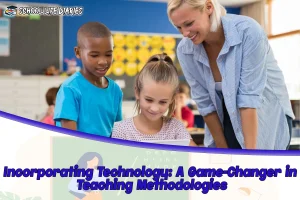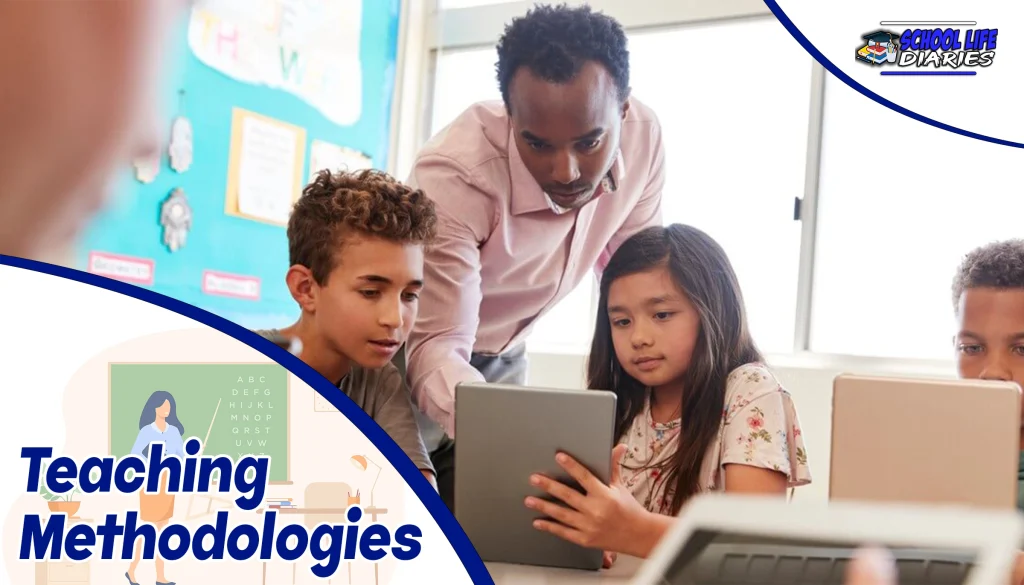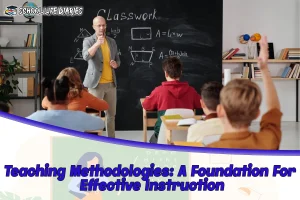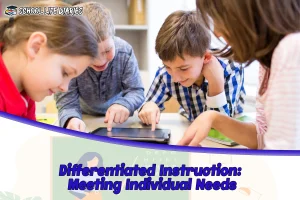In today’s fast-paced world, where information is readily available at our fingertips, educators face the challenge of preparing students for a future that is constantly evolving. As a result, teaching methodologies have become a crucial aspect of the education landscape, focusing on engaging students, promoting critical thinking, and fostering a lifelong love for learning.
In this article, we will dive deep into the realm of teaching methodologies, exploring various approaches, strategies, and techniques that empower educators to create meaningful and impactful learning experiences for their students.
Teaching Methodologies: A Foundation For Effective Instruction
Teaching methodologies encompass a range of practices and approaches that educators employ to facilitate the learning process. These methodologies shape the overall structure and delivery of instruction, taking into account the diverse needs and learning styles of students.
By employing innovative teaching methodologies, educators can create an inclusive and engaging classroom environment that maximizes student potential and promotes academic growth.
The Role of Active Learning in Teaching Methodologies
Active learning is a fundamental aspect of modern teaching methodologies. It emphasizes hands-on experiences, collaboration, and student-centered approaches.
By actively involving students in the learning process, educators create opportunities for them to apply theoretical concepts, solve problems, and develop critical thinking skills.
Examples of active learning strategies include group discussions, project-based learning, case studies, and simulations.
Incorporating Technology: A Game-Changer in Teaching Methodologies

In the digital age, technology has become an invaluable tool for educators. Integrating technology into methodologies can significantly enhance the learning experience.
From interactive whiteboards and educational apps to online resources and virtual reality, technology offers a myriad of possibilities to engage and motivate students.
By leveraging these tools, educators can create dynamic and interactive lessons that cater to diverse learning styles and capture students’ attention.
Differentiated Instruction: Meeting Individual Needs
Every student has unique strengths, weaknesses, and learning preferences. To address these differences, educators employ differentiated instruction as part of their teaching methodologies.
This approach involves tailoring instruction to meet the individual needs of each student, providing appropriate learning materials, and employing various instructional strategies.
Differentiated instruction promotes inclusivity, boosts student engagement, and fosters a positive learning environment.
FAQs:
1. What are the key elements of effective teaching methodologies?
Effective methodologies comprise several key elements, including clear learning objectives, student engagement, active learning strategies, assessment and feedback mechanisms, and ongoing professional development for educators.
2. How can project-based learning be incorporated into teaching methodologies?
Project-based learning is an effective teaching methodology that encourages students to tackle real-world problems and apply their knowledge in practical ways.
Educators can incorporate project-based learning by designing authentic and meaningful projects that align with the curriculum, provide clear guidelines and expectations, and offer opportunities for collaboration and reflection.
3. Are there teaching methodologies that specifically cater to students with special needs?
Yes, there are teaching methodologies specifically designed to support students with special needs. These methodologies focus on individualized instruction, assistive technology, multisensory approaches, and creating inclusive classroom environments that promote equal opportunities for all learners.
4. How can formative assessment be integrated into teaching methodologies?
Formative assessment plays a crucial role in effective teaching methodologies. Educators can integrate formative assessment by employing strategies such as quizzes, class discussions, exit tickets, and self-reflection activities.
By regularly assessing student progress, educators can provide timely feedback, identify areas for improvement, and adjust instruction accordingly to ensure student learning is on track.
5. What are some innovative teachers’ methodologies for promoting critical thinking?
Promoting critical thinking is an essential goal of modern education. Some innovative methodologies that foster critical thinking include inquiry-based learning, problem-solving activities, Socratic seminars, and debates.
These approaches encourage students to analyze, evaluate, and synthesize information, develop logical reasoning skills, and think critically about complex issues.
6. How can collaborative learning be incorporated into methodologies?
Collaborative learning is a powerful methodology that encourages students to work together in groups to achieve shared learning goals.
Educators can incorporate collaborative learning by assigning group projects, facilitating group discussions, and promoting peer-to-peer learning.
This approach enhances communication skills, teamwork, and the ability to collaborate effectively, all of which are valuable skills in the 21st-century workplace.
Conclusion: Empowering Educators, Enriching Student Learning
Teaching methodologies play a crucial role in shaping the learning experience for students in the 21st century. By embracing innovative approaches, educators can create dynamic and engaging classrooms that inspire a love for learning and equip students with the skills they need to thrive in an ever-changing world.
As educators continue to explore, adapt, and refine their teaching methodologies, they empower their students, foster critical thinking, and nurture a lifelong passion for knowledge. Remember, methodologies are not one-size-fits-all solutions.
The key lies in understanding the unique needs of students, staying abreast of emerging research and best practices, and continually refining instructional approaches to maximize student success. By embracing effective, educators become catalysts for positive change, shaping the future of education and empowering the next generation of learners.






